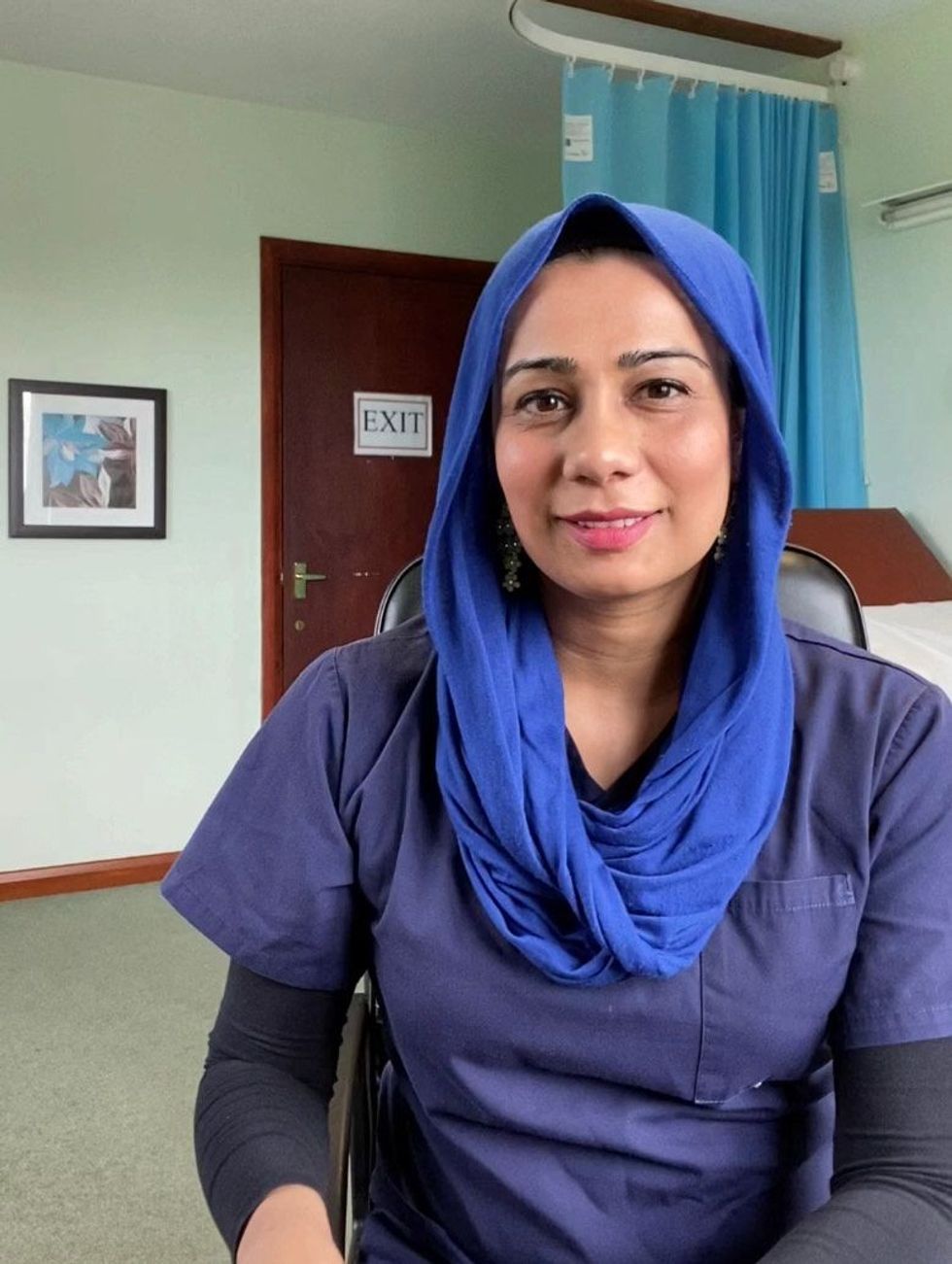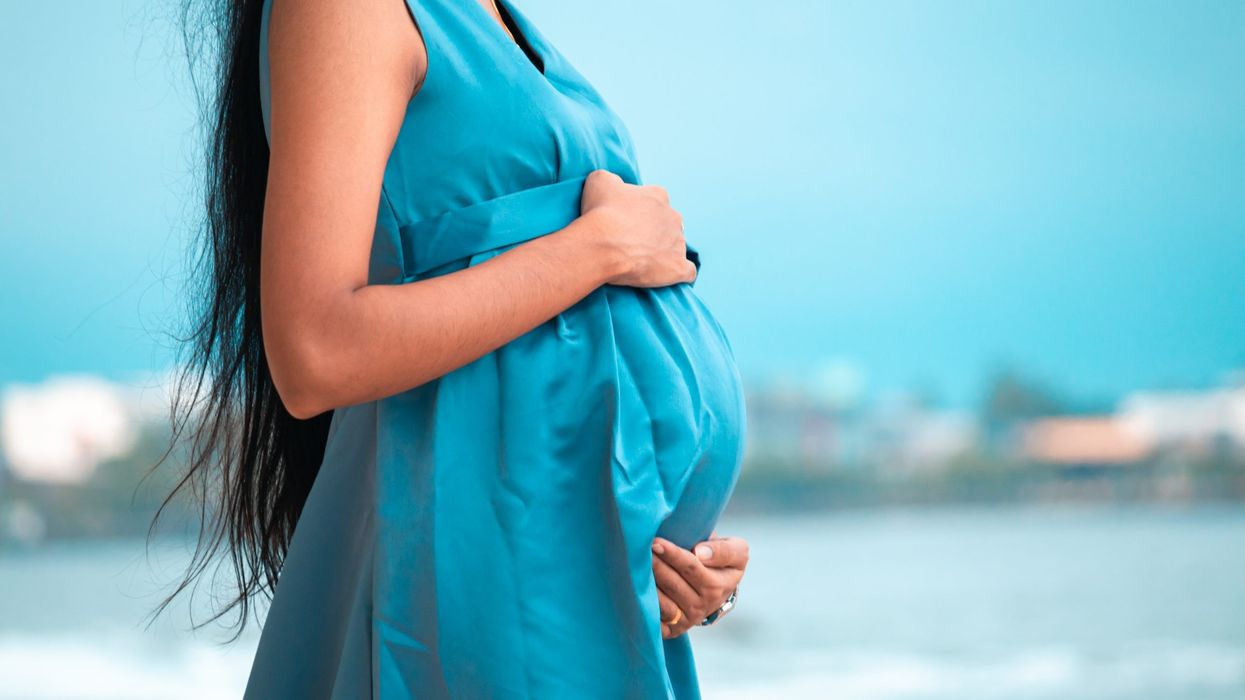THE NHS has urged pregnant women to get Covid-19 vaccine as jabs are now being offered to everyone aged 18 and over.
"The Covid-19 vaccines are now being offered to everyone aged 18 and over, including pregnant women. Whatever stage you’re at in your pregnancy, if you’re breastfeeding or plan to have children in the future, you can get vaccinated and help protect yourself from serious illness," the health service said in a statement.
The Royal College of Obstetricians and Gynaecologists (RCOG) has advised that unvaccinated or partially vaccinated pregnant women should take steps to avoid Covid-19 infection by continuing to practice social distancing, particularly in their third trimester, it added.
As part of the initiative to promote vaccination among pregnant women, the NHS has gathered advice from six medical experts about Covid vaccination, pregnancy, fertility and women’s health.

"It is safe to have the vaccine if you're breastfeeding. The Joint Committee on Vaccination and Immunisation (JCVI) and the WHO have recommended the Covid vaccines can be taken while breastfeeding. Like everyone aged 18 or over, breastfeeding women can now book their Covid vaccination," said Dr Kiran Rahim.
"You can have your vaccine at any stage of your pregnancy. There's no reason to delay getting the jab because you're pregnant."
According to Dr Henna Anwar, Covid-19 vaccine will protect the pregnant woman and baby from Covid-19 infection.

"While it’s very rare for pregnant women to become seriously ill if they get Covid-19, it may be more likely later in pregnancy. If this happens, there’s a small chance your baby may be born prematurely, which can affect their long-term health," she said.
Dr Koyes Ahmed said: "The Joint Committee on Vaccination and Immunisation (JCVI) has advised it’s preferable for you to be offered a choice of two vaccines – Pfizer and Moderna. This guidance is based on the data from the US that shows around 120,000 pregnant women have been vaccinated mainly with mRNA vaccines, such as Pfizer-BioNTech and Moderna, and no safety concerns have been raised.

"The Covid vaccines do not contain any ingredients known to be harmful to pregnant women or babies. None of the Covid vaccines being administered in the UK are live vaccines so they cannot infect you or your baby with the virus and are considered safe to receive during pregnancy."

Dr Nighat Arif has said that it is important that a pregnant woman receive all of the vaccines they need during pregnancy, which includes whooping cough and, in winter, the flu vaccine.
"These vaccines can safely be given alongside Covid-19 vaccines, but you may wish to separate the jabs by at least 7 days to avoid confusion over any of the common side effects."
She added that claims that Covid vaccination could affect fertility are not supported by any data.
"During the clinical trials, a number of women became pregnant by accident – a similar number in the vaccinated and unvaccinated groups. There is evidence from other vaccines – such as the flu vaccine-that they are perfectly safe and do not affect fertility. The theory that immunity to the spike protein could lead to fertility problems is not supported by evidence. Most people who contract Covid-19 will develop antibody to the spike and there is no evidence of fertility problems after Covid-19 disease."

Dr Chintal Patel robust real-world data from the US shows that no safety concerns have been raised by pregnant women after getting the Covid-19 jab.
"As a result, the Joint Committee on Vaccination and Immunisation (JCVI) has updated its guidance," Dr Patel said.
Dr Pavan Minhas said: "The British Fertility Society says that as some people may experience minor side effects in the few days after vaccination, you may want to leave a few days between your Covid vaccination and some fertility treatment procedures (e.g. egg collection and embryo transfer in IVF) so that any symptoms may be attributed correctly to the vaccine or the treatment procedure.
"You can speak to your medical team for tailored advice," she said.

For more details, visit nhs.uk/covidvaccine





